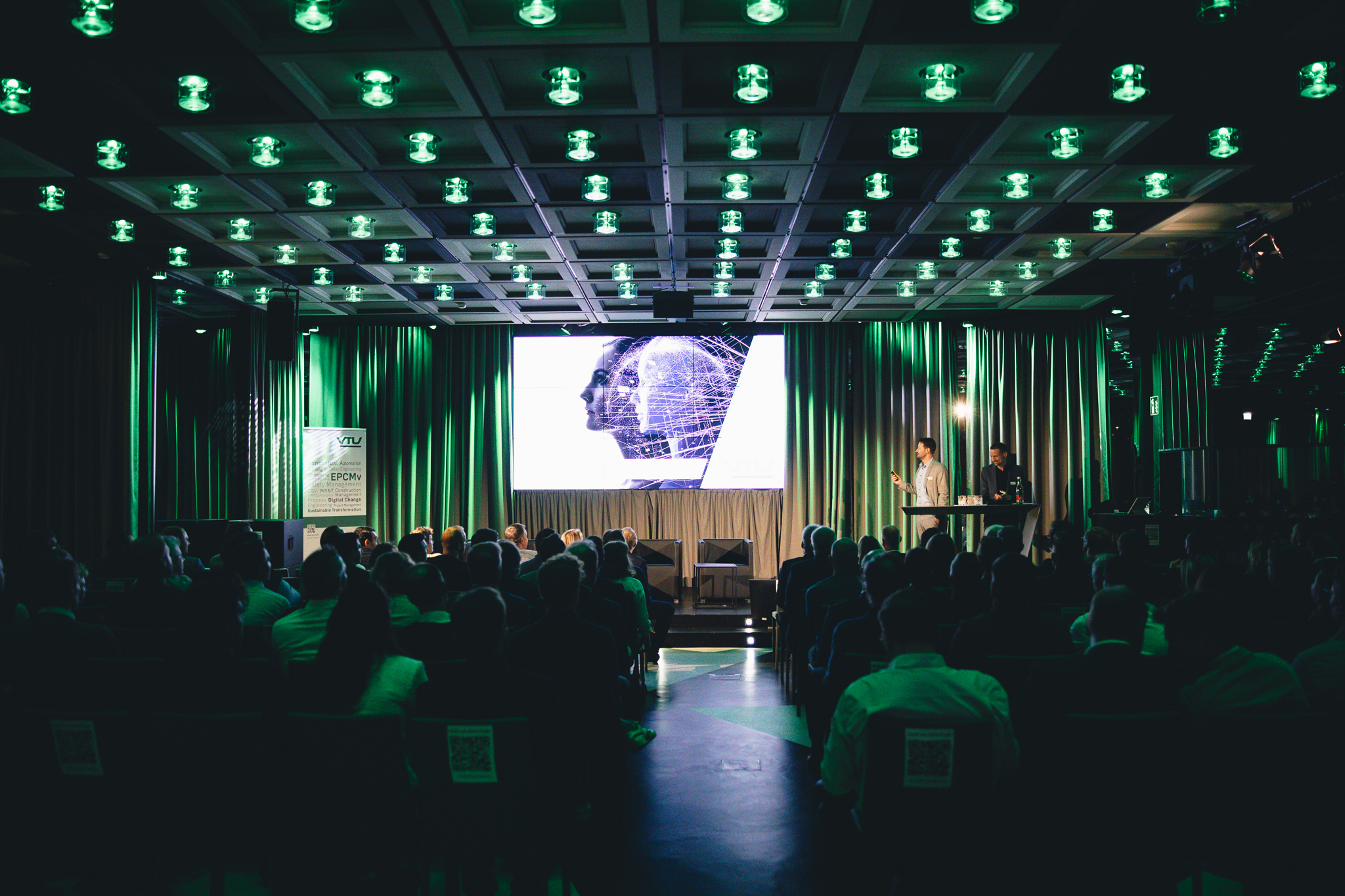Artificial intelligence in life sciences
Artificial intelligence has become increasingly important in recent years, and with the introduction of ChatGPT, AI models like these are on everyone's lips. But how can companies in the Life Sciences successfully integrate artificial intelligence into their operations? What data can be used and how? What legal aspects need to be taken into account? These and other questions were discussed in detail at the first VTU Innovation Forum.

Economic and legal aspects
In his keynote speech, Patrick Ratheiser, CEO of Leftshift One, discussed business development through generative AI and enterprise ChatGPT and presented their development from concept to implementation.
"AI and the legal aspects" was the topic of the keynote speech by Christian Bergauer, Professor at the University of Graz. He analyzed the function of law with regard to AI applications and addressed the various legal implications in the life cycle of (generative) AI – from the training phase to its use.
Jeannette Gorzala, Vice President of the European AI Forum, presented AI as a "must" for Europe and Austria as a business location. She highlighted the attractiveness of Europe and Austria, both for AI start-ups and large AI providers, and motivated companies to actively engage with the topic.
AI & Life Sciences
In their presentations, VTU experts also addressed the challenges and opportunities that artificial intelligence offers, particularly for companies in the Life Sciences industry:
Stefan Pauli, Senior Data Scientist at VTU, and Elke Wieser, VTU Team Lead for Computer System Validation, showed how AI can be used successfully in practice in the highly regulated GMP sector. They presented the development in the areas of artificial intelligence on the one hand and GMP on the other and named the essential basics for AI validation. Finally, they showed a practical approach for combining AI and GMP.
The possibilities for smart reporting using AI-based data mining were the topic of the presentation by Birgit Krenn, Head of Manufacturing Science and Technology at VTU. She discussed regulatory relevant GMP data and documents and presented AI-based data collections using practical examples. She showed that AI can bring benefits, but that setbacks and "lessons learned" must also be accepted, especially at the start of AI developments, in order to reap the rewards later on.
Andreas Schumacher, Director Digitalization at VTU, explored the question of whether AI can be seen as an industrial revolution. In his presentation, he addressed the increasing speed of development of digitalization and AI, but at the same time pointed out that AI still has some barriers in the industrial sector and has therefore not yet fully arrived. The change in the job profiles of all employees in a company will ultimately represent a revolution, but one that goes far beyond a mere industrial revolution.
"Megatrends such as digitalization and AI are like slow-motion avalanches – after a slow start, they gather incredible speed and momentum. As a company, we have to make faster and faster decisions in order to stay on top of this avalanche," says Andreas Schumacher.
AI in practice
The innovation forum also offered interactive program items such as experience stations where current AI tools could be experienced live and, above all, tried out by all visitors. In addition, specific questions and challenges could be raised in an expert panel.

![[Translate to English:] [Translate to English:]](/fileadmin/_processed_/8/3/csm_Andreas.Schumacher_9368b21df4.png)